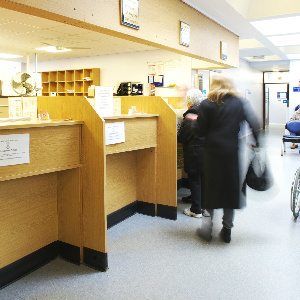One-third of practice boundary pilot surgeries failed to register a single patient

More than a third of the practices taking part in the Government’s ‘choice of GP practice’ pilots failed to register a single patient from outside their area, final results from the 12-month study reveal.
The long-awaited report into pilot sites concluded that, despite positive feedback from users, there was little demand from patients or practices and called on the Government to consider alternatives to support increased access.
It also found that commissioners had big concerns about the potential destabilisation of general practice and impact on the wider health service if it was to be rolled out nationally.
The evaluation comes in the same week that changes to the GP contract have been published, including the provision to open practice boundaries if practices wish.
GP leaders said the scheme did not provide value for money, and called on the Government to do a further evaluation before rolling it out.
The findings, published today by the London School of Hygiene and Tropical Medicine, show there was little demand from practices, with only 43 out of a total of 345 eligible practices taking part in the pilot areas of Westminster, Salford, Manchester and Nottingham.
It also showed that 15 (35%) of the 43 participating practices did not register any patients from outside their boundary.
Related stories
In full: practice boundaries pilot evaluation
Managers delay publication of practice boundaries pilot evaluation once again
Six practices signed up the large majority – 71% – of the total of 1,108 patients who registered outside their area, while over half of the remaining 28 practices with any outside registrants signed up fewer than 24 patients each.
Interviews with PCT managers also revealed concerns around the cost of home visits for patients registered with a GP outside their PCT and future costs of prescribing and referrals.
PCT managers said the scheme would lead to practices’ populations becoming more segregated, with some practices taking on more young, healthy patients, leaving others to deal with less mobile, older and sicker patients.
Practices also said they were worried about commissioning costs and the potential impact on prescribing budgets.
The study concluded: ‘The findings of the pilot evaluation suggest that patients participating were positive about the scheme and their experience was superior to that of similar patients in the General Practice Patient Survey.’
However, it added: ‘There was little sign of major increased cost, though demand was not high. Patients and the majority of pilot practices were very positive about extending the scheme. PCT managers were more cautious.’
The study authors also questioned ‘whether the same or similar improvements in access and convenience could be obtained in other ways at similar or lower cost, such as by requiring practices to offer an outer boundary, or a wider overall boundary, or to extend their opening hours still further’.
As part of contract negotiations, NHS England has agreed with the GPC that all practices will be able to register patients from outside their traditional boundaries from October, without any obligation to provide them with home visits.
However, the GPC still believes the scheme does not represent value for money.
Dr Peter Holden, GPC negotiator and a GP in Matlock, Derbyshire, said: ‘This was hardly a priority at a time of austerity. It’s an awful lot of money to blow on so few patients – we are extremely short of money at the moment and anyone could tell you that this is going to cost you more money, because you need to stitch in other services.’
Dr Chaand Nagpaul, chair of the GPC, said: ‘On the basis of this report, we do need further evaluation to establish whether the NHS should spend finite resources on a project that has received a very limited roll out to a small number of practices. The report’s author conceded that the results were inconclusive.
Health minister Lord Howe said: ‘Our recent changes to the GP contract will help patients choose a GP practice to suit them. This will support hardworking people who commute to work and cannot access their local surgery during opening times, and enable people who move house to stay with their GP if they want to.’
Pulse revealed last year that the pilot was struggling to get off the ground, with practices at two of the selected PCTs boycotting the project altogether and only 12 patients registering out of their area by June 2012, a number that jumped considerably but was still only at 514 by the following January.
Pulse July survey
Take our July 2025 survey to potentially win £1.000 worth of tokens











